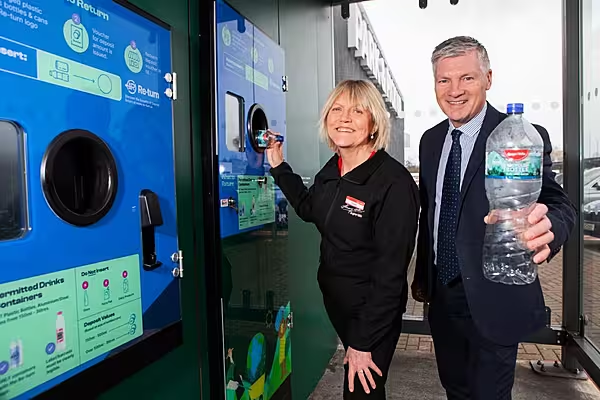Asda, the British supermarket arm of U.S. retail giant Walmart, said uncertainty surrounding Brexit was affecting its customers as it eked out a small rise in second-quarter sales, helped by a later Easter this year.
Prime Minister Boris Johnson has promised to take Britain out of the European Union by 31 October with or without a deal, setting the scene for a showdown in parliament where lawmakers are opposed to a divorce without a transition agreement.
"Our results for the quarter reflect the challenges faced by shoppers in this market as the uncertainty surrounding Brexit continues to loom," Walmart chief executive Doug McMillon said on Thursday.
Asda, whose proposed takeover by rival Sainsbury's for £7.3 billion ($8.8 billion) was blocked by Britain's competition regulator in April, said its like-for-like sales rose 0.5% in its fiscal second quarter to 30 June.
That compares with a decline of 1.1% in the previous quarter, or a rise of 0.5% adjusted for the later timing of Easter.
"If ever a case study on the impact the mood of the nation has on UK spending habits were needed, this quarter has provided it," said Asda CEO Roger Burnley.
"Consumer confidence levels are at an almost six-year low – due in no small part to the ongoing uncertainty around Brexit and amplified by the impact of weather and tracking against national sporting events in the same period last year," he said.
Burnley said while Asda's food business "performed well" and online growth outpaced the market during the period, its non-food business was "challenged".
Asda said its gross margin declined, reflecting increased fuel sales with lower margins, soft demand for higher-margin general merchandise categories and price cuts, particularly in own-label products.
The fall in gross margin meant operating income also declined.
Lower Prices
Industry data published last month showed all of Britain's big four grocers - market leader Tesco, Sainsbury's , Asda and Morrisons - saw total sales fall in the 12 weeks to 14 July.
The dip reflected a heatwave and the men's soccer World Cup a year earlier, which boosted demand.
All of the big four are still losing market share to the German-owned discounters Aldi and Lidl, who continue to open more stores.
Official data published on Thursday showed overall British retail sales edged up unexpectedly in July, helped by the strongest growth in online spending in three years.
Asda's strategy is focused on lower prices to narrow the gap with the discounters, a step-up in innovation in own-brand products, and better store environments and product availability, along with improvements in its e-commerce operations and use of technology.
It is also trialing partnerships. During the quarter it worked with Just Eat on a one-hour grocery home delivery service.
In April, Asda announced proposals to move hourly-paid retail staff to a standardised contract. While the hourly rate was increased to 9 pounds, in return staff could be asked to work more flexible times and in different departments and would forgo paid breaks.
The proposal has drawn criticism from union GMB and opposition Labour leader Jeremy Corbyn.
With the Sainsbury's deal thwarted, Walmart, which purchased Asda for £6.7 billion in 1999, said in May it was considering a path to a public listing for Asda.
Burnley told Reuters last month the timescale for a possible stock market listing of Asda was two to three years.
Separately on Thursday Walmart reported strong second-quarter results and raised its earnings expectations for the year.
News by Reuters, edited by Donna Ahern Checkout. Click subscribe to sign up for the Checkout print edition.





